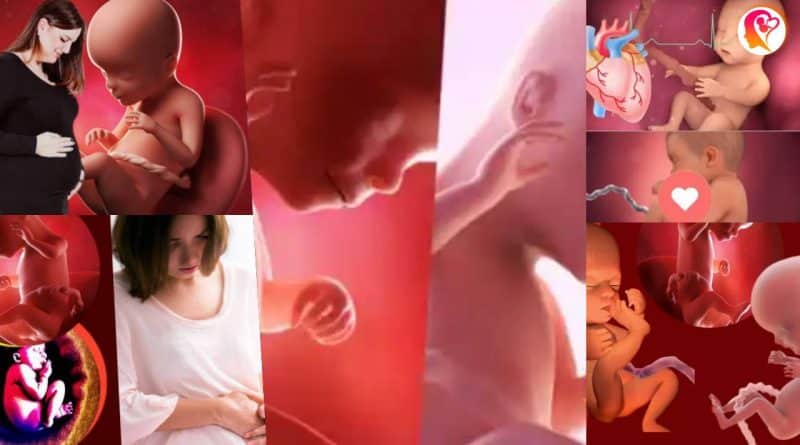10 Amazing Things Your Baby Does Inside the Womb
इस लेख को हिंदी में पढ़िए
Welcome to our article on the amazing things a baby does inside the womb during pregnancy. From the moment of conception, the baby begins an incredible journey of growth and development that is truly fascinating to learn about. In this article, we will discuss about 10 of the most interesting things that a baby does inside the womb.
Highlights of Article
Baby fingers prints
The baby begins to develop its own unique fingerprints. By the end of the first trimester, a baby’s fingerprints are fully formed and remain so for life. This knowledge is really amazing that this amount of work is done within three months of conception.
Development of the sense of touch
The baby begins to develop its sense of touch. By the end of the first trimester, the baby’s fingers and toes have formed and the baby is able to experience the sensation of touch. In the womb, the baby senses things around it such as the umbilical cord.
Sense of taste
The ability to taste begins to develop in the baby. By the end of the first trimester, the baby’s taste buds are formed and the baby is able to experience the sensation of taste. When a pregnant woman eats something, now the baby in the womb can react according to his/her likes and dislikes.
Ability to smell
The ability to smell starts developing in the child. By the end of the first trimester, the baby’s olfactory receptors have formed and the baby is able to experience the sensation of smell. This will also determine the food choice of the baby in the womb. Baby may like or dislike the food eaten by mother because baby’s sense of smell and taste is now developed.
Ability to hear
The baby begins to develop the hearing ability. By the end of the first trimester, the baby’s ears have formed and the baby is able to hear the muffled sounds of the outside world. The closest to the baby is the mother, so most baby has heard the mother. This is also one of the reasons why attachment to the mother is more than anyone in childhood.
Ability to see
The child begins to develop its ability to see. By the end of the first trimester, the baby’s eyes are formed and the baby is able to sense light and dark. When a pregnant woman moves from darkness to bright light, the baby in the womb can feel it. Baby may like it or dislike this move and can give reactions in terms of movements as well.
Baby movements
The baby starts moving and kicking. By the end of the second trimester, the baby is able to move and kick. By about 6 months, every pregnant woman should feel these movements. Most of pregnant women would recognize the movements by the end of 5th month as well. Baby movements now on is an important parameter of baby’s wellbeing inside womb.
Immune system
The baby begins to develop its immune system in the womb. By the end of the second trimester, the baby’s immune system is fully formed and will continue to develop throughout pregnancy. Even after delivery, the child’s immune system continues to strengthen.
Lung development
The lungs of the baby continue to develop till 8 months. By the end of the third trimester, the baby’s lungs are fully formed and the baby is able to breathe on its own.
The child begins to practice breathing. In the third trimester, the baby begins to practice breathing by inhaling and exhaling amniotic fluid.
Brain development
It takes a full 8 months for the baby’s brain to form in the womb. When you enter in 9 months, the baby is fully formed and its brain is also fully developed. Now the baby is fully ready to be born.
These are all the things that the baby does inside the womb, it is really amazing to think about all the growth and development that happens during pregnancy. The child goes through a lot of changes, and by the time baby is born, he/she is a fully formed, unique individual. We hope you enjoyed knowing about these 10 interesting things that the baby does inside the womb.
As always, if you have any questions or concerns about your pregnancy, please consult with your healthcare provider.
We hope you found this article helpful, and we wish you the best of luck on your pregnancy journey. Thank you for reading.




